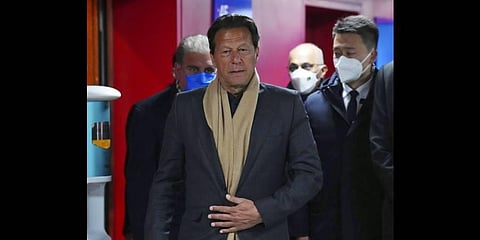

ISLAMABAD: Chinese companies are ready to establish a USD 3.5 billion reprocessing park in Pakistan's Gwadar within two to three years, reported Dawn.Pakistan's Prime Minister Imran Khan, who is in Beijing on a four-day tour, also signed an agreement on industrial cooperation with China, on Friday to facilitate investment from China and other parts of the world to Pakistan.
Additionally, a USD 350 million textile cluster over 100 acres of land on Lahore-Kasur Road is under pipeline, Khan's aide on China-Pakistan Economic Corridor (CPEC) Khalid Mansoor told the media.Imran Khan interacted with National Development and Reform Commission (NDRC) chairman He Lifeng to deliberate on CPEC projects.
Notably, Chinese state-owned and private enterprises have also expressed their desire for investment in CPEC projects, reported the newspaper.On the very first day of the Beijing Winter Olympics 2022, Imran Khan signed the deal with China and the NDRC chairman said China attached immense significance to CPEC and was firmly committed to its steady progress and development.
He said that China had become Pakistan's largest investment and trade partner in the last seven years and both sides were keen to maintain the momentum of overall economic and trade ties in future as well, reported the newspaper.Earlier on Thursday, International Monetary Fund (IMF) has said that Pakistan's economy remains vulnerable because of delayed implementation of structural reforms and widening imbalances on external accounts.
Pakistan remains vulnerable to possible flare-ups of the pandemic, tighter international financial conditions, a rise in geopolitical tensions, as well as delayed implementation of structural reforms.